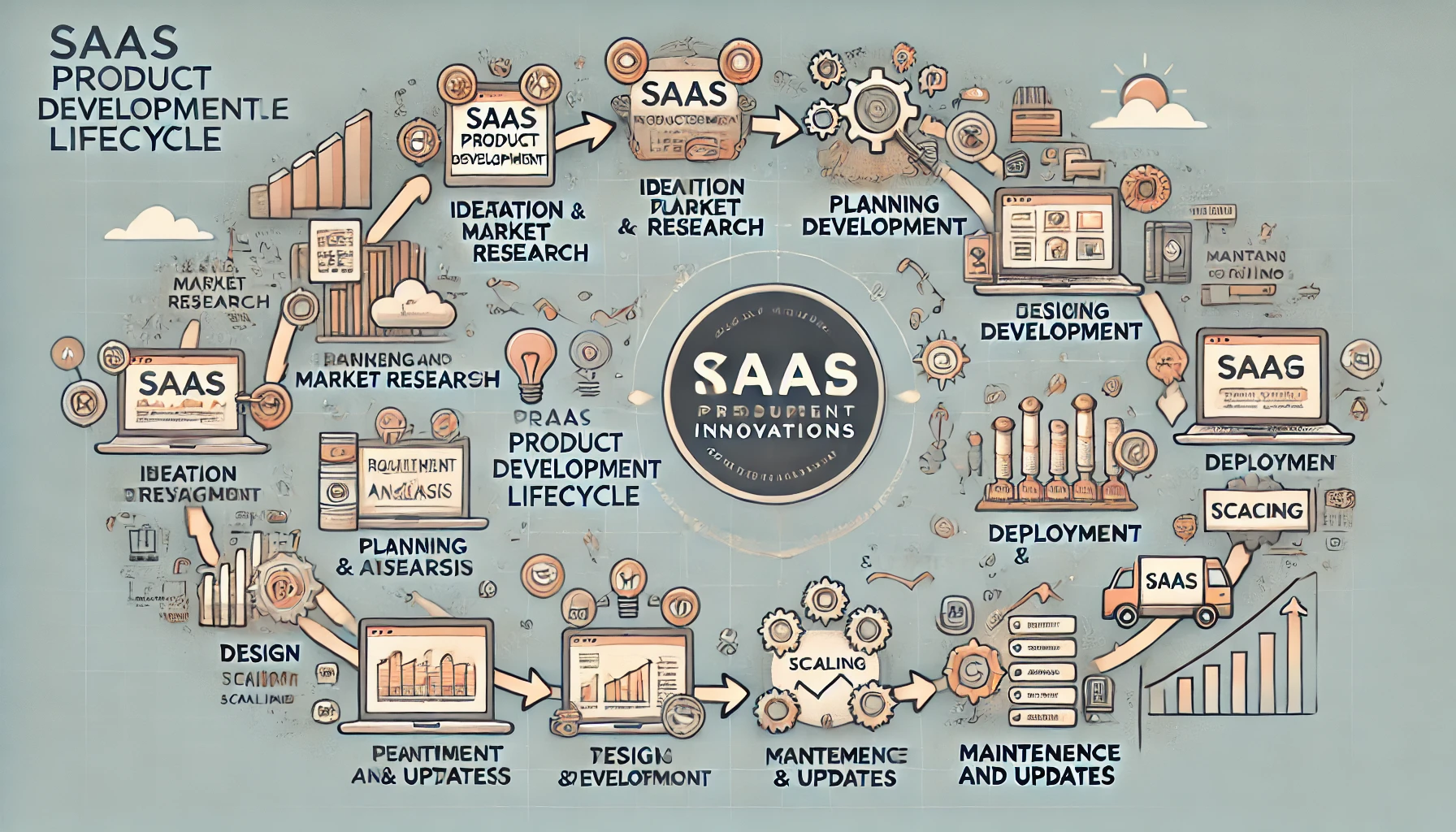The SaaS Product Development Lifecycle: A Detailed Guide
The Software as a Service (SaaS) model has revolutionized the way businesses operate, offering scalable and cost-effective solutions accessible from anywhere with an internet connection. At Kryoverse Innovations, we specialize in developing cutting-edge SaaS products that cater to a diverse range of industries. This detailed guide will walk you through the SaaS product development lifecycle, highlighting key stages and best practices to ensure successful product delivery.
1. Ideation and Market Research
The first step in the SaaS product development lifecycle is ideation, where the initial concept for the product is generated. This stage involves brainstorming sessions, gathering ideas, and identifying the problem your product aims to solve.
Key Activities:
- Brainstorming Sessions: Engage with stakeholders, including potential customers, to generate ideas.
- Market Research: Analyze market trends, identify competitors, and understand customer pain points.
- Feasibility Study: Assess the technical and financial feasibility of the proposed solution.
At Kryoverse Innovations, we emphasize a customer-centric approach during ideation, ensuring that the product concept aligns with market needs and business objectives.
2. Planning and Requirement Analysis
Once the idea is validated, the next step is detailed planning and requirement analysis. This stage involves defining the product’s scope, features, and functionalities.
Key Activities:
- Requirement Gathering: Collect detailed requirements from stakeholders through interviews, surveys, and workshops.
- Documentation: Create comprehensive requirement documents, user stories, and use cases.
- Project Planning: Develop a project plan outlining milestones, timelines, resources, and budget.
Our team at Kryoverse Innovations utilizes agile methodologies to ensure flexibility and adaptability during the planning phase, allowing for iterative improvements based on feedback.
3. Design
The design phase translates the requirements into a visual representation of the product. This stage includes both UI (User Interface) and UX (User Experience) design.
Key Activities:
- Wireframing: Create basic wireframes to outline the structure and layout of the application.
- Prototyping: Develop interactive prototypes to visualize the user flow and interactions.
- UI/UX Design: Design the final user interface, focusing on aesthetics, usability, and accessibility.
Kryoverse Innovations employs a user-centered design approach, ensuring that the product is intuitive and provides an exceptional user experience.
Read More: Innovative Mobile App Development Firms in the USA
4. Development
The development phase is where the actual coding and implementation of the product take place. This stage is typically divided into front-end and back-end development.
Key Activities:
- Front-end Development: Build the client-side interface using technologies like HTML, CSS, and JavaScript.
- Back-end Development: Develop the server-side logic, databases, and APIs using technologies like Node.js, Python, or Ruby on Rails.
- Integration: Integrate various components and third-party services to ensure seamless functionality.
Our development team at Kryoverse Innovations follows best coding practices, continuous integration, and rigorous testing to deliver high-quality software.
5. Testing
Testing is a critical phase in the SaaS product development lifecycle. It ensures that the product is free of bugs and meets the specified requirements.
Key Activities:
- Unit Testing: Test individual components or modules for correctness.
- Integration Testing: Verify that different modules work together as expected.
- System Testing: Conduct end-to-end testing of the complete system.
- User Acceptance Testing (UAT): Perform testing with actual users to validate the product’s functionality and usability.
Kryoverse Innovations adopts automated testing tools and manual testing processes to ensure comprehensive coverage and quality assurance.
6. Deployment
Deployment involves releasing the product to the production environment, making it available to users. This stage requires meticulous planning to ensure a smooth transition.
Key Activities:
- Deployment Planning: Develop a detailed deployment plan, including rollback procedures and contingency plans.
- Environment Setup: Configure the production environment, including servers, databases, and network settings.
- Release: Deploy the application to the production environment and perform final verification.
At Kryoverse Innovations, we prioritize minimal downtime and seamless user experience during deployment, leveraging continuous deployment practices.
7. Maintenance and Updates
Post-deployment, the focus shifts to maintenance and regular updates to keep the product relevant and functional.
Key Activities:
- Monitoring: Continuously monitor the product for performance, security, and user feedback.
- Bug Fixing: Address any issues or bugs reported by users.
- Updates and Enhancements: Release regular updates to introduce new features, improvements, and security patches.
Kryoverse Innovations provides ongoing support and maintenance services, ensuring that our SaaS products remain robust and up-to-date.
8. Scaling
As the user base grows, it’s essential to scale the SaaS product to handle increased demand and ensure consistent performance.
Key Activities:
- Performance Optimization: Optimize the application for speed and efficiency.
- Infrastructure Scaling: Scale the infrastructure horizontally or vertically to accommodate more users.
- Feature Scaling: Add new features and functionalities to meet evolving customer needs.
Our expertise at Kryoverse Innovations ensures that scaling is handled seamlessly, maintaining product stability and user satisfaction.
Conclusion
Developing a successful SaaS product requires meticulous planning, execution, and continuous improvement. At Kryoverse Innovations, we follow a structured SaaS product development lifecycle, ensuring that each stage is executed with precision and aligns with our commitment to delivering exceptional software solutions. By adhering to best practices and leveraging our expertise, we help businesses transform their ideas into market-ready SaaS products that drive growth and innovation.

